10+ Sample Telecommunications Proposals
-
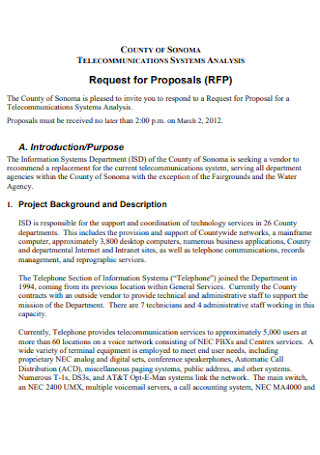
Telecommunications System Analysis Proposal
download now -
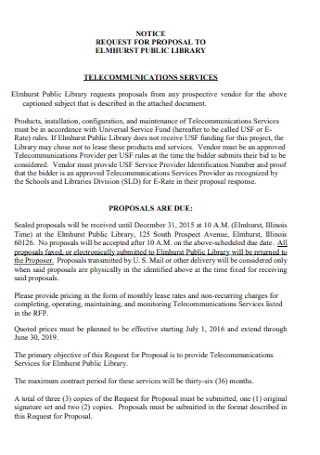
Telecommunication Service Proposal
download now -
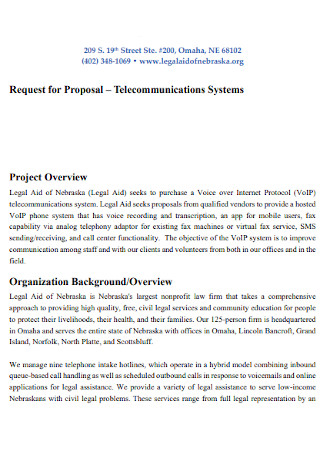
Telecommunications Systems Proposal
download now -
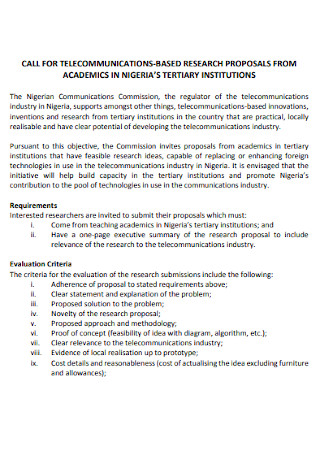
Telecommunications Based Research Proposal
download now -
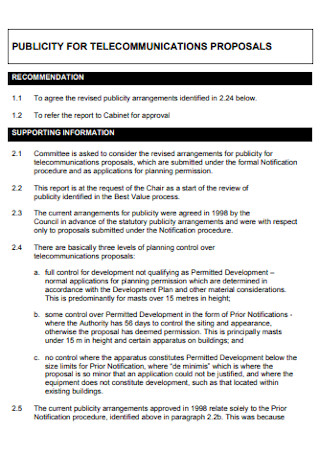
Publicity for Telecommunication Proposal
download now -

District Telecommunications Proposal
download now -
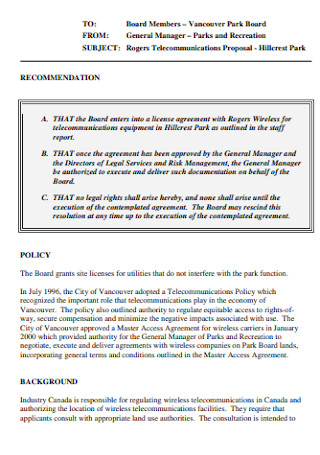
Rogers Telecommunications Proposal
download now -
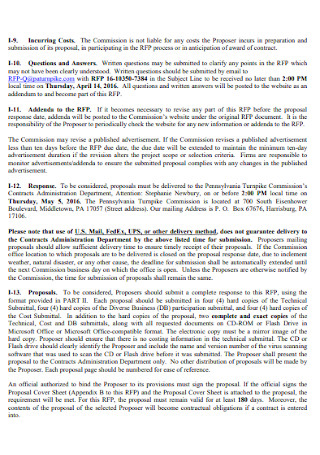
Proposal for Telecommunications Expense Management
download now -
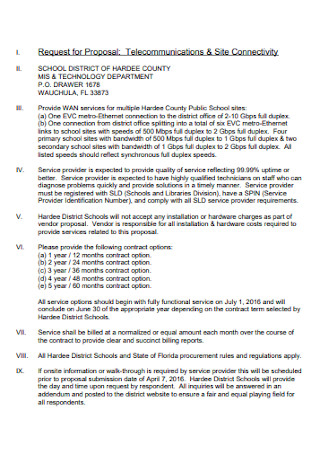
Telecommunications and Site Connectivity Proposal
download now -
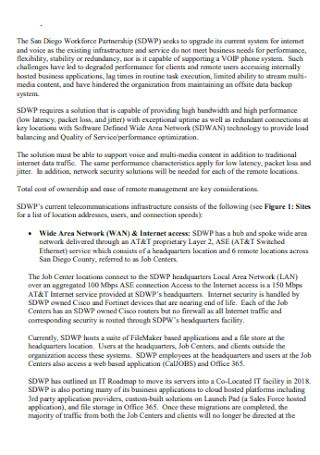
Telecommunications Infrastructure Services Proposal
download now -

Telecommunications Auditing Proposal
download now
FREE Telecommunication Proposal s to Download
10+ Sample Telecommunications Proposals
What Is Telecommunication?
What Is the Importance of Telecommunication Proposals?
4 Benefits of Telecommunication:
What Are the Basic Functions of Telecommunications?
What To Consider Before Writing a Proposal?
How to write a Telecommunications Proposals?
FAQs
What is a telecommunications carrier?
Why telecommunication is important in our life?
What is telecommunications experience?
What are the pros and cons of telecommunication?
What Is Telecommunication?
Telecommunication is communication at a distance using electrical signals or electromagnetic waves. Examples of telecommunications systems are the telephone network, the radio broadcasting system, computer networks and the Internet.
The telecommunications industry is one of the fastest growing industries in the world today. The field includes a wide variation of organizations that do everything from telecom infrastructure, designing and manufacturing tablet computers to selling service plans to cell phone users. Whether you specialize in building and maintaining wireless networks, satellite communications, or in creating the latest Wi-Fi reading letter of application, you always want to grow your market share or get your new projects accepted or funded.
The telecommunications business is complex: a brochure, phone call, or handshake is not likely to seal a new deal. You almost always need to spell out a lot of details—which means you need to write a business proposal.
These days, when competition is fast and global, it is important to constantly increase your client list or customer base, secure new projects, and form new partnerships.
What Is the Importance of Telecommunication Proposals?
Telecommunication has played an important role in the transport sector. It is used to manage a fleet of vehicles in passenger transport and freight, and to fly and land airplanes. With the service of telecommunication, it has also become possible to manage the movement of human traffic. Moreover, Telecommunications is an important tool for business plan. It enables companies to communicate effectively with customers and deliver high standards of customer service. Telecommunications is a key element in allowing employees to collaborate easily from wherever they are located, remote or local.
The societal importance of telecommunications is well-recognized and broadly understood, reflected in its near-universal penetration and use. Below are some of the key areas of impact:
- Telecommunications enables participation and development. Telecommunications plays an increasingly vital role in enabling the participation and development of people in communities and nations disadvantaged by geography, whether in rural areas in the United States or in developing nations in the global society and economy.
- Telecommunications provides a technological foundation for societal communications. Communication plays a central role in the fundamental operations of a society—from business to government to families. In fact, communication among people is the essence of what distinguishes an organization, community, or society from a collection of individuals. Communication—from Web browsing to cell phone calling to instant messaging—has become increasingly integrated into how we work, play, and live.
- Telecommunications provides vital infrastructure for national security. From natural disaster recovery plan, to homeland security, to communication of vital intelligence, to continued military superiority, telecommunications play a pivotal role. When the issue is countering an adversary, it is essential not only to preserve telecommunications capability, but also to have a superior capability. There are potential risks associated with a reliance on overseas sources for innovation, technologies, applications, and services.
4 Benefits of Telecommunication:
Improved Communication
Telecom services provide the network for information to be exchanged electronically through both wired and wireless methods. This information is shared from room to room or across the country. Examples include telephone, internet-connected computers, fax machines and handheld communication devices.
Smartphones and tablets have increased capabilities through mobile communication. Employees can use these devices to access information and applications, work on documents, send and receive emails and join conversations via teleconference.
Enhanced Team Collaboration
Having cross-functional teams who work on corporate initiatives, new products, programs and/or marketing campaigns are likely to get together on a regular basis to discuss progress and share ideas. Telecom services provide the access and communication capabilities needed to bring employees together and make progress on any joint ventures.
Increased Flexibility
The number of people who work from home has grown 115 percent since 2005, according to Global Workplace Analytics. If you have remote employees in the organization, or your employees are required to travel frequently for training and client meetings, the appropriate telecom services can help them stay connected.
Premier Customer Service
The telephone remains one of the most relied upon methods of communication. Customers pick up the phone and call your organization because it is convenient, reliable, and provides instant gratification.
The ability to connect through the Internet 24/7 has become essential to your ability to service these customers. The communication between your organization and your customers can reinforce your brand and your relationship with your prospective and current customers, but to do this you need a dependable connection.
What Are the Basic Functions of Telecommunications?
The roles and functions of telecommunications is to provide an exchange of communication or information at a distance between people, satellites, or computers. Here are the basic functions of the telecommunication network:
- Transmit information; the primary function of telecommunication systems is Transmits information to far distance and establish an interface between sender and receiver by some means of transmission mode or way.
- Establish the interface between the sender and receiver;
- Route message along with most efficient path;
- Performs elementary processing of the information to ensure that the right message gets to the right receiver;
- Perform editorial task on the better;
- Convert message from one speed to another and from one format to another;
- Telecommunication systems control the flow of information.
What To Consider Before Writing a Proposal?
Before you begin writing your proposal outline, there are some things you must consider, including:
Your audience
Identify who the decision-makers are and determine the relationships between them.
Each stakeholder will have their own goals and preferences. Multiple versions of the proposal may have to be written depending on your audience.
- How familiar are they with the project or problem? What do they already know? What do they not know?
- What do they want to hear?
- Should you provide background information on a particular topic?
- Is there any particular way to make them better understand what you want to convey?
For instance, if the proposal is for the head of the technology department, jargon and technical language are likely expected. On the other hand, if it is a small business owner you are trying to win over, use simple, easy-to-understand language, with the proposal highlighting the project’s positive impact on the company’s bottom line.
Potential pitfalls
Four basic reasons why proposals get rejected:
- Poorly defined proposal
- Proposal not aligned with organizational goals
- Ineffective project proposal presentation
- Project benefits not clearly and credibly defined
In core, certain projects fail to receive the green light, not because they are bad projects per se but because the proposal lacked clarity and persuasiveness.
Data and research
Everything is in need of facts, figures, graphs, and charts to substantiate your proposal and justify the project’s existence. Research past projects, both successful and unsuccessful because you will need as much hard data, evidence, and examples as you can provide to craft a convincing proposal. In addition, you should review our research proposals.
How to write a Telecommunications Proposals?
Write a proposal to obtain executive buy-in. Choose the key people to support the project—you need decision-makers on your side to turn this vision into reality.
FAQs
What is a telecommunications carrier?
A telecommunications carrier is a company that’s been authorized to operate a communication system. This can include landlines and cellular phones, internet, VoIP services and more—this means that nearly every business stands to benefit from telecom services, including yours. Most people are familiar with the large, national brands when it comes to options. These companies often bring a level of reliability that can’t be found in any other company. But no matter where you are in the nation, there are likely smaller, regional providers that have benefits of their own. You will even find that companies that started out in television are now offering telecom services as well, giving you the chance for one-stop shopping.
Why telecommunication is important in our life?
It satisfies our basic needs. Information technology and the ability to connect and communicate is a fundamental part of how our society operates. In today’s digital ecosystem, telecommunication has become the foundation for businesses, governments, communities, and families to seamlessly connect and share information. This has been a part of our everyday lives to get hold of information about a lot of things that mostly matters.
What is telecommunications experience?
Telecommunications includes voice, video, and Internet communications services. With fast technological changes in telecommunications, those with up-to-date technical skills have the best job opportunities. Average earnings in telecommunications greatly exceed average earnings throughout private industry.
What are the pros and cons of telecommunication?
Telecommunication involves regular transmission of signs, signals, messages, writings, images and sounds of any nature by wire, radio, optical or other electromagnetic systems.
Time Purview
Pro: Telecommunication has, most certainly and significantly, decreased the amount of time taken to send/receive information. The assurance of on-time delivery of a project is highly comforting.
Con: Telecommunication has also infused a quick response fashion. Everyone expects their queries to be responded to immediately. This impacts privacy and the work-life balance.
Technological Advancement Purview
Pro: Advanced technology will help increase the reliability and security in transferring data. Plus, it is slicker and promises faster communication. Faster data and smooth network are key to successful businesses. Many businesses today—new and established—meet and close deals through virtual meetings.
Con: While it will further allow us to do almost everything at a click, it will deprive us of the human aspect. Video calls are really not the same as face-to-face meetings. And there is something personal about emails that a group messenger misses out on.
Economical purview (Cost)
Pro: The cost of sending out an email works out at being insignificant. So, transfer of information is cheaper as you save a lot on stamps and shipment costs.
Con: Initial set up cost of telecommunication—emails, phones and faxes—is very high. Where many countries are still struggling to receive an uninterrupted power supply, getting data and network connection seem a far-fetched thought. It is also a matter of relative return on investment, i.e., spending huge amounts on laying cables and facilitating infrastructure should make sure a developmental return which will contribute to the nation’s growth and GDP. When this cannot be guaranteed, then introducing telecommunication services seem a total waste of money.
Ecological purview (Environment)
Pro: Pointless to say, the amount of paper, and thus trees, saved when emailing is far more than when writing letters. It is quite rare when emails are printed for reference such as commercial quotations, Important business document attachments, tickets, etc.
Con: Telecommunicating involves energy consumption and pollutant emission. For instance: a personal computer is made up of more than a thousand components, a large number of which are significantly hazardous, such as toxic solvents and heavy metals like lead, barium, cadmium, mercury and copper.
Telecommunications is an essential component of the broader IT industry, which is sometimes seen as having three technology legs: processing—to transform or change information, storage—to allow communication of information from one time to another, and communications—to transmit information from one place to another. The limits between these areas are not very dissimilar, but this decomposition helps illustrate the scope of IT and the role that telecommunications play.
